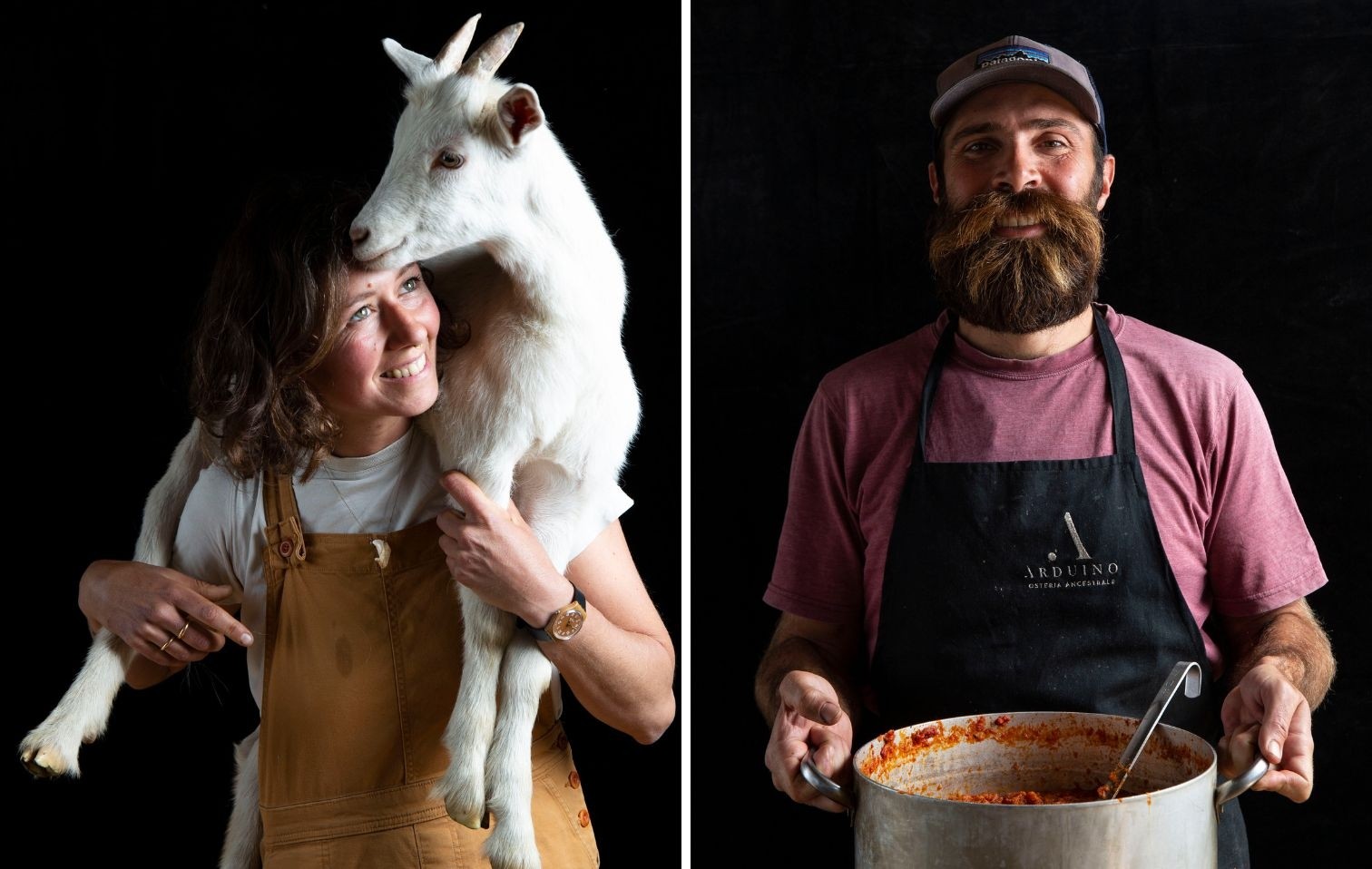When the concept of sustainability becomes a way of life, not in the sense of a "trend" but in the broader and deeper sense of environmental ethics. Arduino is an estate, an ancestral tavern, and a place of reconnecting with nature, where two former athletes passionate about gastronomy cook what the land offers them every day.
Photo by Lido Vannucchi
The story
The word "sustainability" is undoubtedly one of the most (ab)used in the food and wine industry in the last fifteen years. A term that encompasses three areas: environmental, social, and economic, but each molds to its liking, adapting it to its context and giving it a more analytical than synthetic implication. There are those, however, who have made sustainability a way of life, a set of practices and habits they cannot do without because they are functional to their well-being and personal fulfillment: this is the case of Podere Arduino in Tuscany, in Bolgheri, in the production area of the renowned Sassicaia and not far from those "tall and straight" cypresses so dear to Carducci, "faithful friends of a better time."
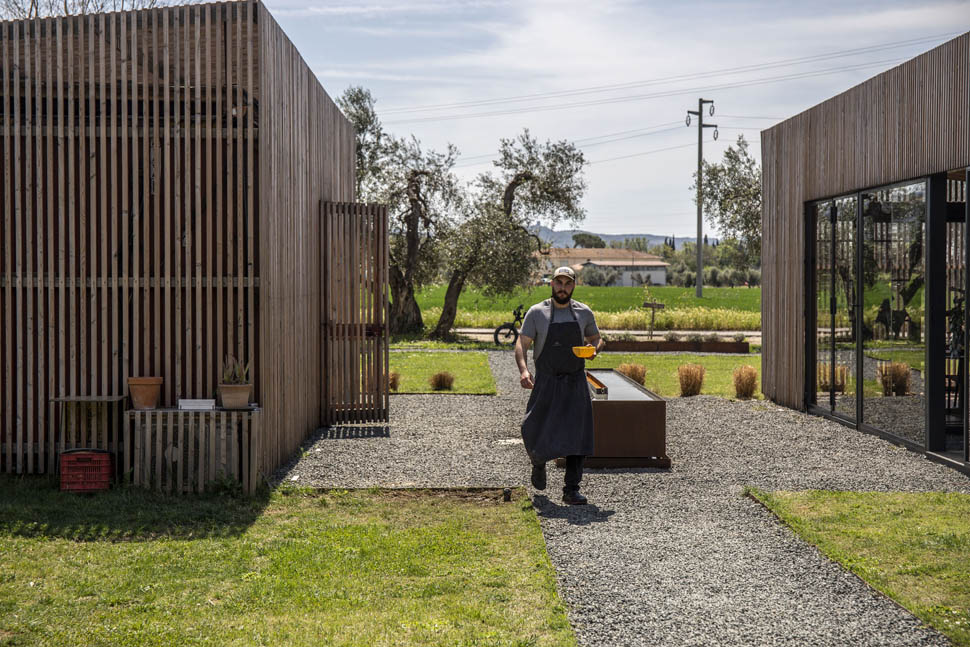
It is about ten hectares of land always cultivated with vegetables and fruit trees, interspersed with centuries-old olive trees, purchased in the 1950s by Agostino Arduino Bartoli and taken over, no more than ten years ago, by his grandson Fabrizio Bartoli and his partner Martina Morelli to shape their ideas and build their life project together. Fabrizio is a geologist, with a past as a professional triathlete, achieving important milestones and a series of mountaineering and geological expeditions in the Himalayas before becoming passionate about cooking. He studies and deepens his knowledge as a self-taught chef, traveling broadly in search of ideas and inspiration.
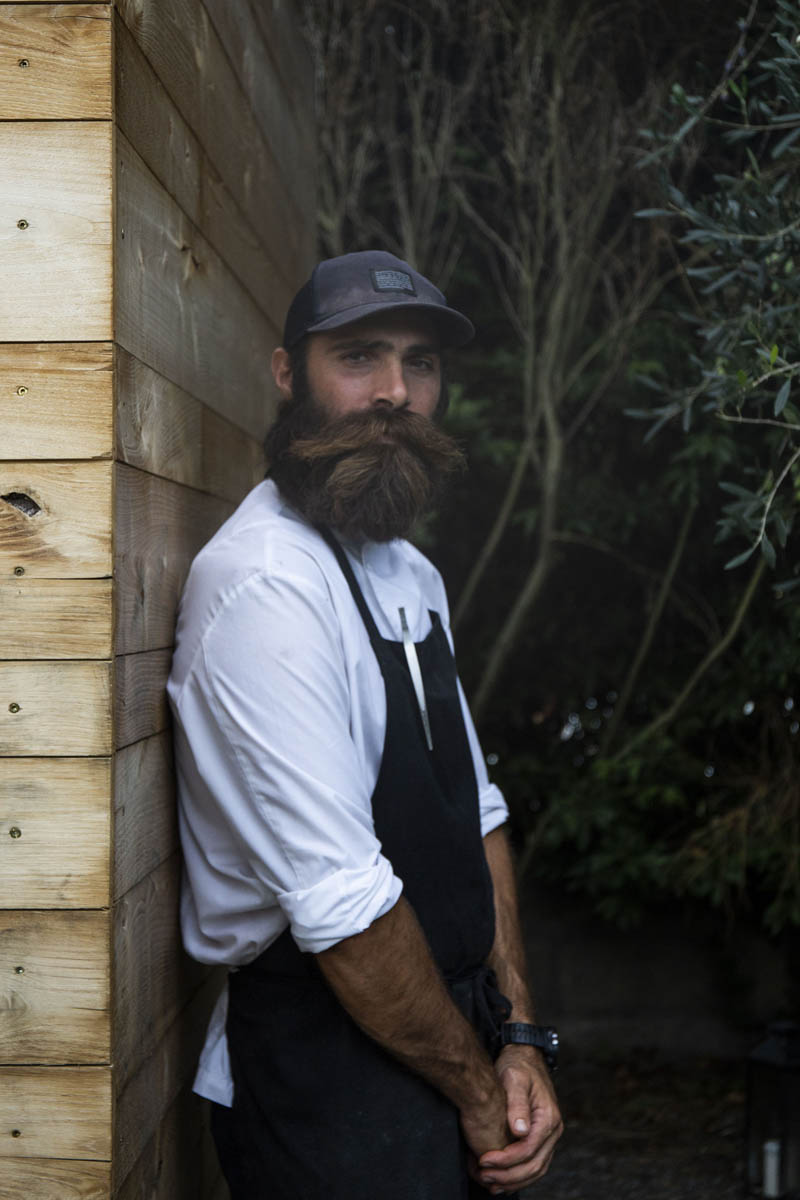
Martina graduates in sports sciences and teaches artistic and postural gymnastics before leaving Italy and dedicating herself to a series of outdoor activities around the world, such as yoga, surfing, and permaculture, allowing her to meet Fabrizio and fulfill her dream of living in harmony with nature.
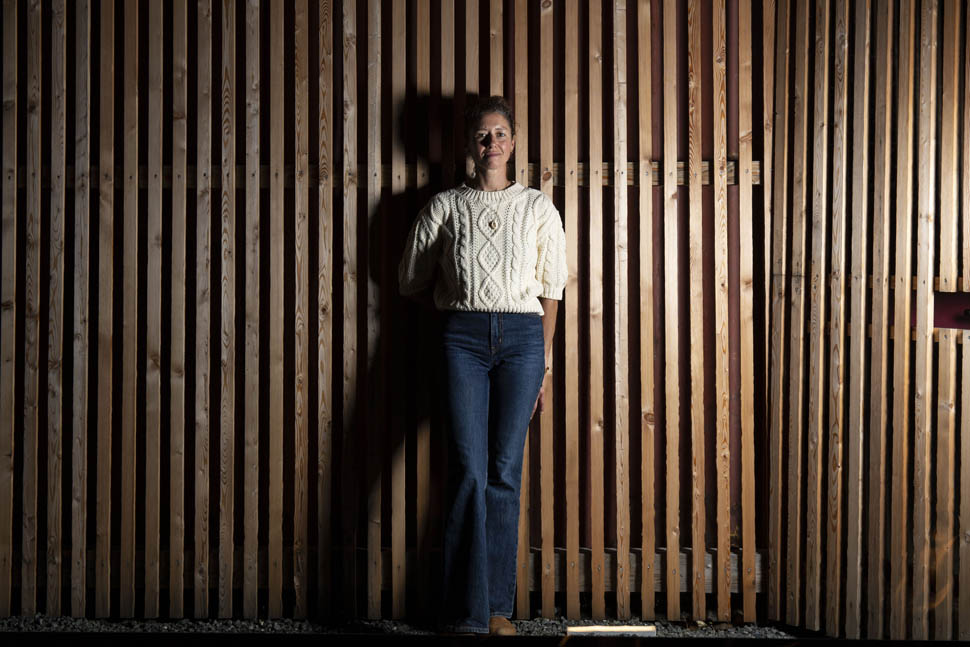
First, they expand the production of oil, which they now sell abroad, planting other varieties such as Leccino, in addition to the already present Moraiolo and Frantoio, and adding Coratina: "We needed a milder oil, and Coratina in this area is softer than the one from Apulia and pairs perfectly with vegetables," says Martina. They continue by converting the estate into organic and cultivating about 300 fruit trees. "Later, we also added hazelnuts and almonds to try to expand and diversify production as much as possible," she continues.
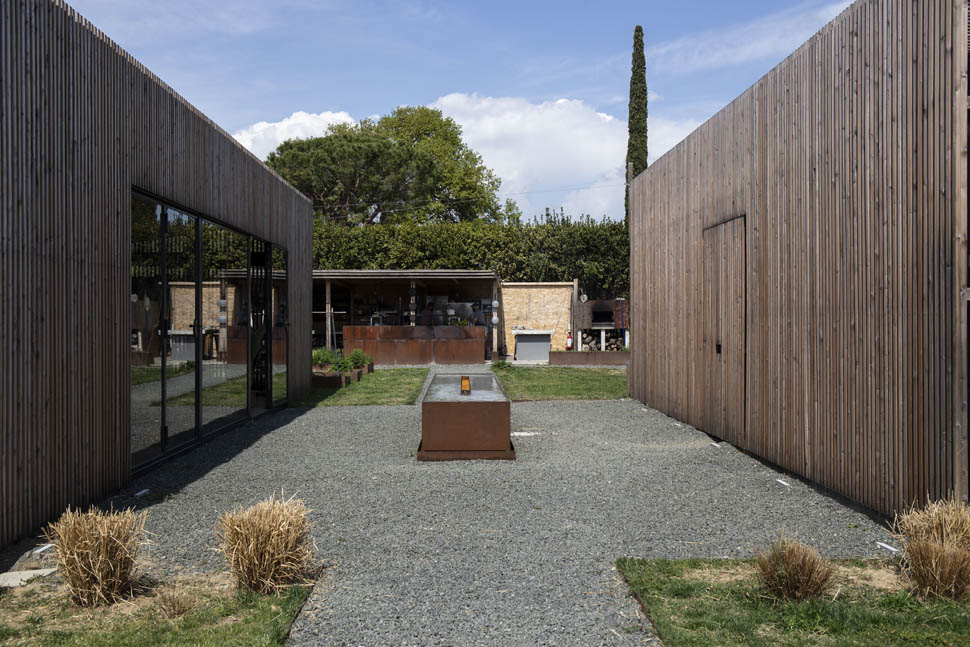
The transition from organic to "regenerative organic" took place three years ago, a set of practices and processes aimed at nourishing and regenerating the soil, going beyond the principles of biodynamics with the aim of adopting the so-called "non-doing" agriculture approach in the long term. This type of agriculture, theorized by the Japanese microbiologist Masanobu Fukuoka, does not involve any soil cultivation by humans or the use of fertilizers or chemicals. It simply aims to follow the course of nature to protect and enhance the biological richness of the soil, increase the biodiversity of ecosystems, and create hospitable environments for living species that contribute to the process.
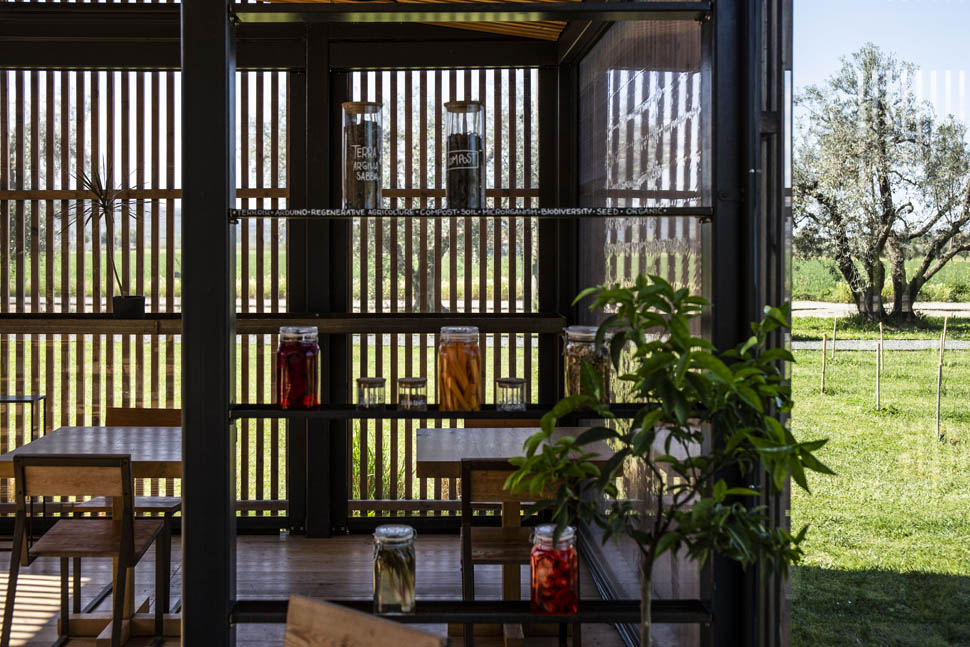
A natural but precise and organized mechanism because "everything starts from here and everything evolves from here": the animals on the estate, such as chickens, goats, and sheep, not only produce eggs and cheeses needed for daily consumption but also, with their grazing, perform the first step in the process. They gently "work" the land and promote "carbon sequestration," the absorption of carbon dioxide by the soil, which would otherwise be released into the atmosphere as a greenhouse gas, among the main culprits of climate change.
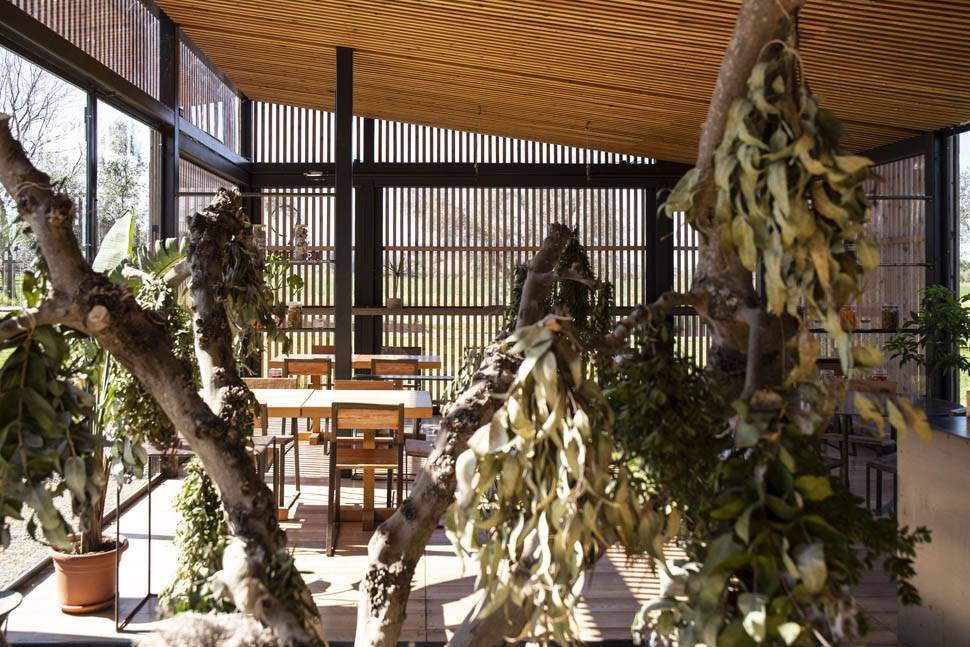
Next, the tall forest protects the crops and creates the ideal habitat for pollinating insects that perform the action of pesticides, favoring the success of the crops. The circle closes when food scraps and other organic compounds end up in the soil to nourish and regenerate it. A circular and virtuous system that has allowed the cultivation of other fruit plants in the last year, in addition to the Gentil Rosso and Senatore Cappelli wheat, from which flours are obtained for the production of bread and dry pasta, and millet, vital for the survival of the animals.
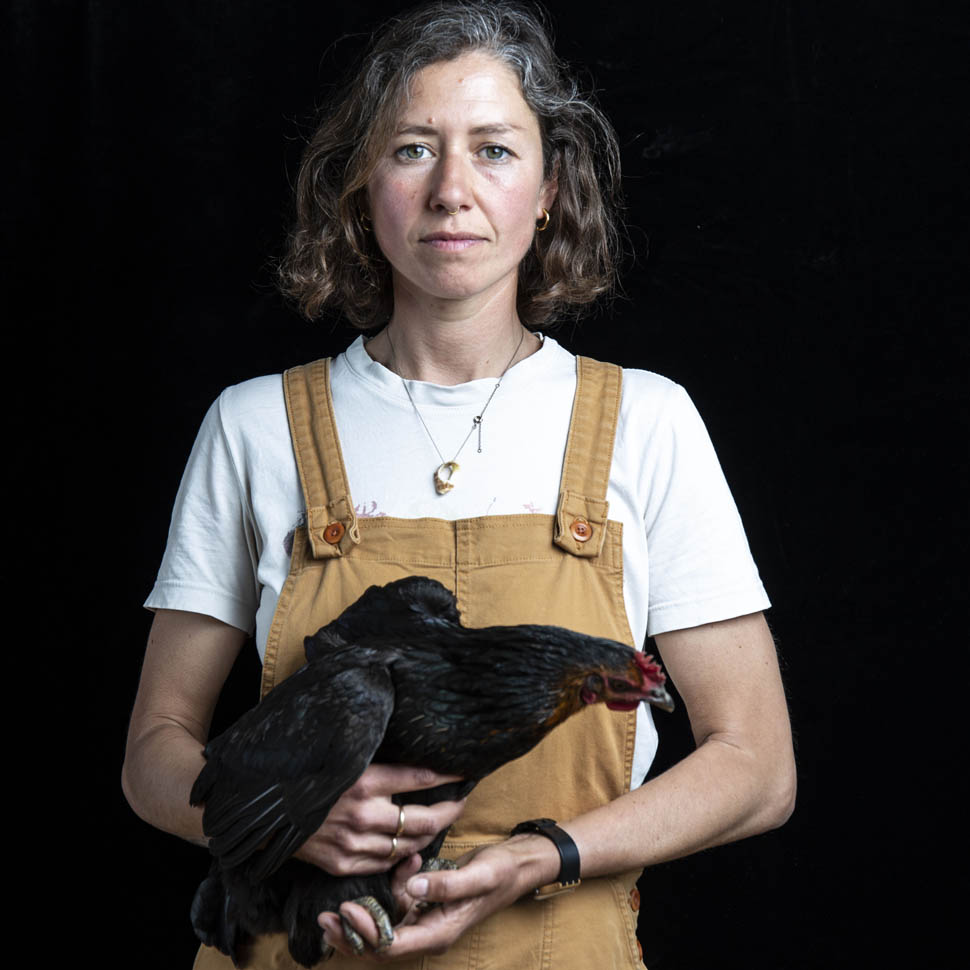
The restaurant
Bolgheri Green dates back to 2018 and was Fabrizio and Martina's first foray into the restaurant concept: it includes the agricultural resale and the shop, where preserves, sauces, creams, compotes, and jams produced with a part of the harvest are sold. These are also used to create tasty appetizers, such as bruschetta with caramelized onion and fresh goat cheese or with blue cheese, apples, and peach jam, to be paired with fruit and vegetable extracts or ever-changing cocktails made with local ingredients. At lunch, it is also possible to enjoy a small selection of express vegetarian dishes in connection with the daily harvest while immersed in the greenery of nature.
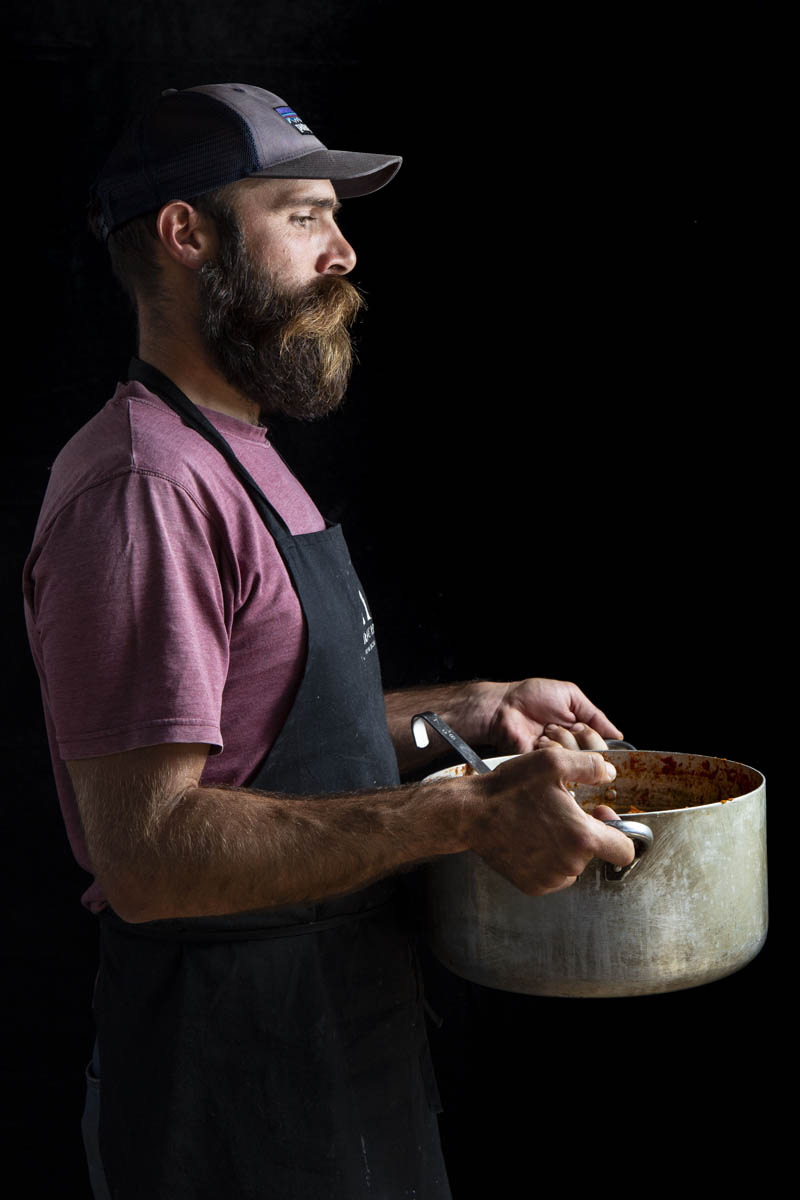
"However, we were not satisfied; we wanted to elevate the kitchen and service, to tell our philosophy in a broader and more detailed way and to fully convey to guests the true soul of Podere Arduino," says Martina. Hence the start of the expansion and redevelopment project of the area, which led in 2021 to the opening of Osteria Ancestrale, a "farm-to-table experience" that consists of serving exclusively what the land offers at that precise moment, without any sophistication, without any electrical input, but with the only aid of fire, in its various forms and ways of expression: from flame to ember, from the plancha, a cast-iron plate for cooking vegetables without losing juice and flavors, to ash, where vegetables can be immersed and cooked under glowing coals, as learned by Fabrizio at the court of Francis Mallman, in the Hartwood restaurant in Tulum, Mexico.
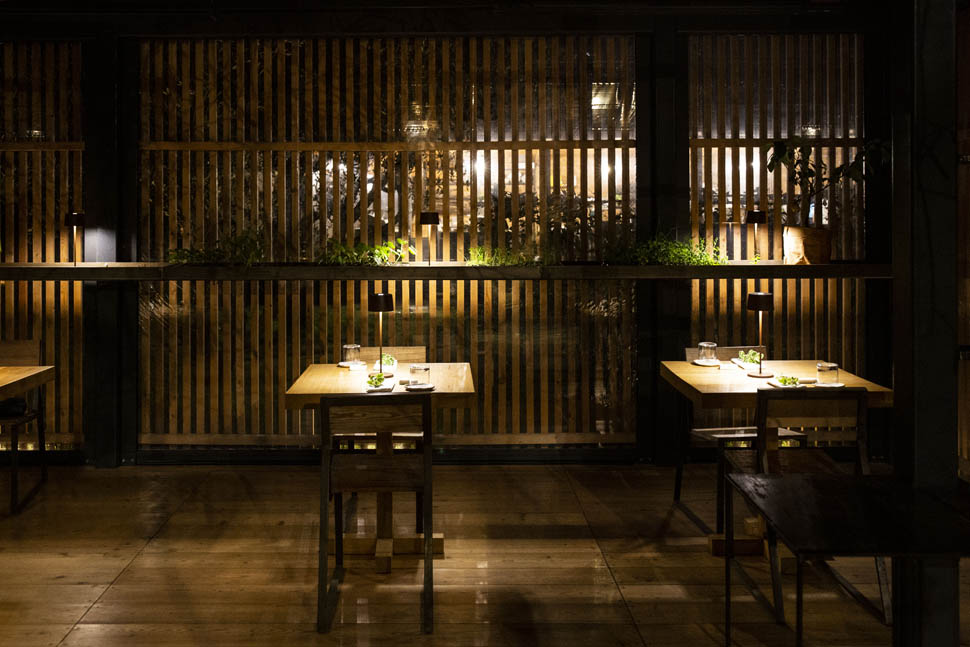
It is Fabrizio himself, then, who, having shed the role of the farmer, puts on the chef's jacket to offer a "culinary journey" that evokes distant lands like South America and Asia, draws inspiration from their techniques and traditions, such as the use of fermentations, but reinterprets them in a personal key, adapting them to the surrounding territory and his roots, translating them into exclusively vegetarian dishes, direct and sometimes surprising, that cannot do without marinades, smoking, drying, and the use of spices and aromatic herbs that add ever-changing and original scents, flavors, and hints: "The choice to offer a vegetarian cuisine is an ethical one, first of all, in line with our dietary habits" explains Martina.
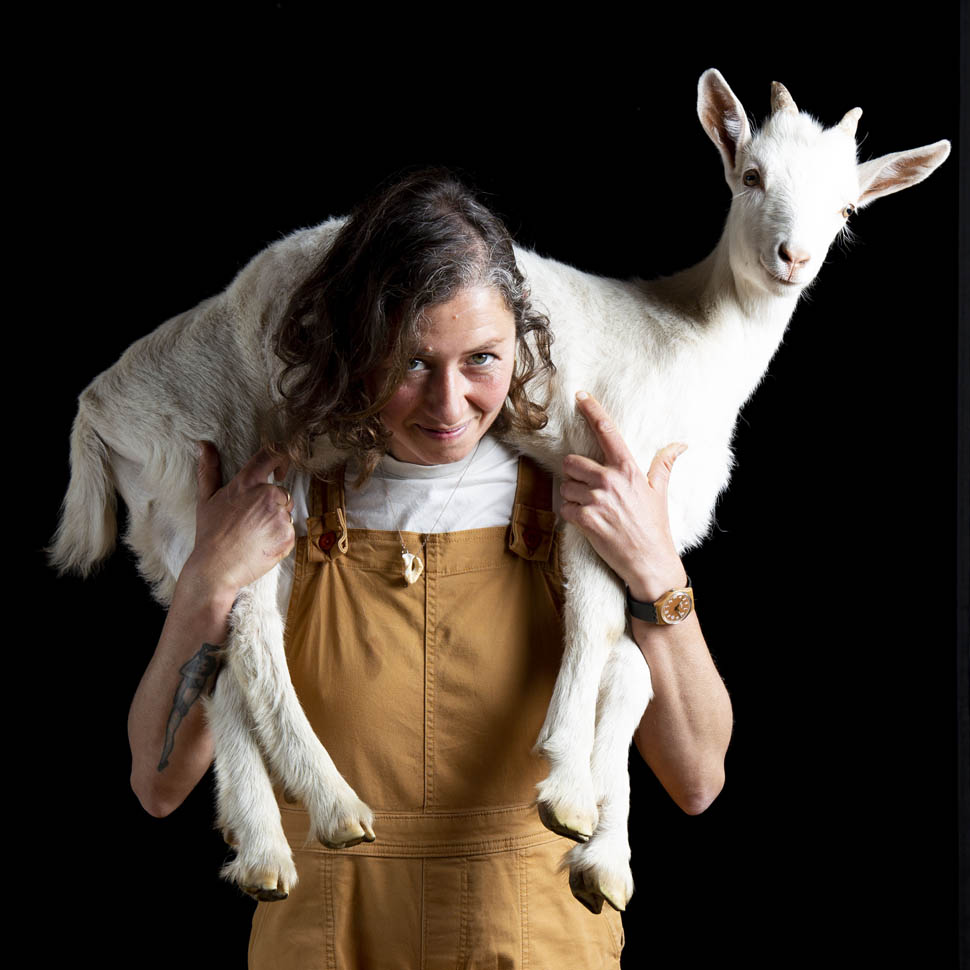
The dining room can accommodate a maximum of 14 covers and is designed to be in harmony with the surrounding space: the olive tree planted by Agostino Arduino Bartoli takes center stage, highlighted by the geometric and essential lines of the furniture, focused on wood and relaxing light tones, on unique wrought-iron pieces, and on other details that evoke nature in its various expressions, such as the bunch of lavender placed on the tables and the various jars containing fermented vegetables. There is no menu, but two tasting menus that vary based on the day's availability: Kipos, or "from the space between the soil and the plate," a 4-course menu at 60 euros (100 including the pairing with natural wines and cocktails) that orders ingredients based on their physical distance from the table; Chronos, or "from the time between harvesting and the plate," an 8-course menu at 90 euros (150 with pairing with natural wines and cocktails), which takes into account the time between the harvesting of the ingredient and its processing to reach the plate.
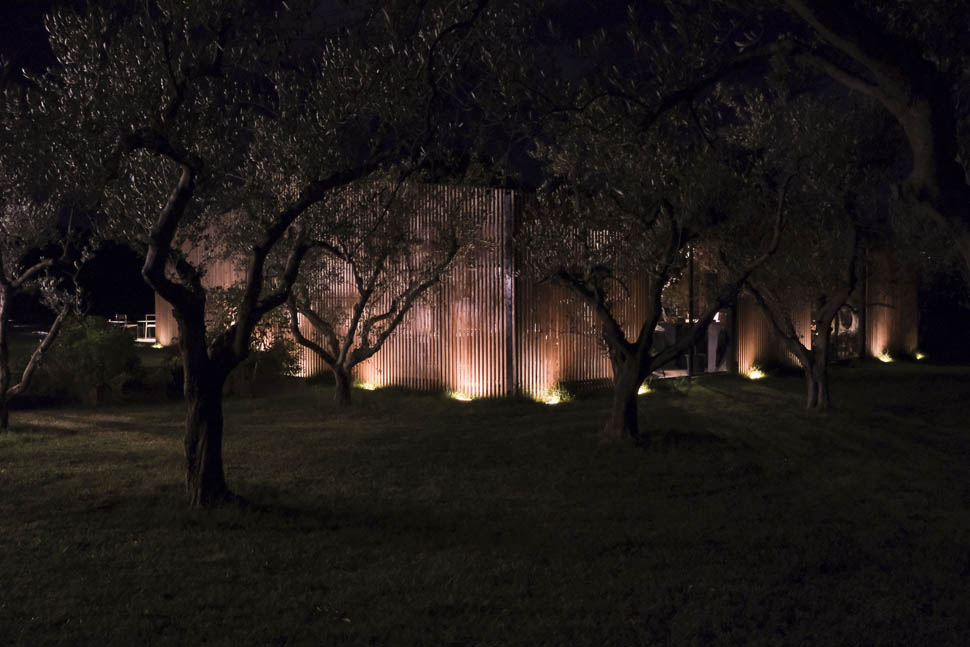
The dishes
A cuisine intimately connected to nature and its cycles, focusing on the use of ingredients obtained within the estate and carefully processed to appreciate their genuineness. This philosophy encompasses the beginning of both tasting paths, a kind of "initiation" to the flavors of the garden: micro vegetables, including peppers, zucchini, tomatoes, turnips, and carrots, harvested just before being brought to the table, to be enjoyed raw or dressed with their own production oil. In addition, some amuse-bouche, including fried chickpea polenta with confit tomatoes, babaganoush, and sumac, or the okra, a fruit derived from a plant typical of Central Africa, cooked on the plancha and accompanied by fresh plums, kefir, and sweet and sour sauce.
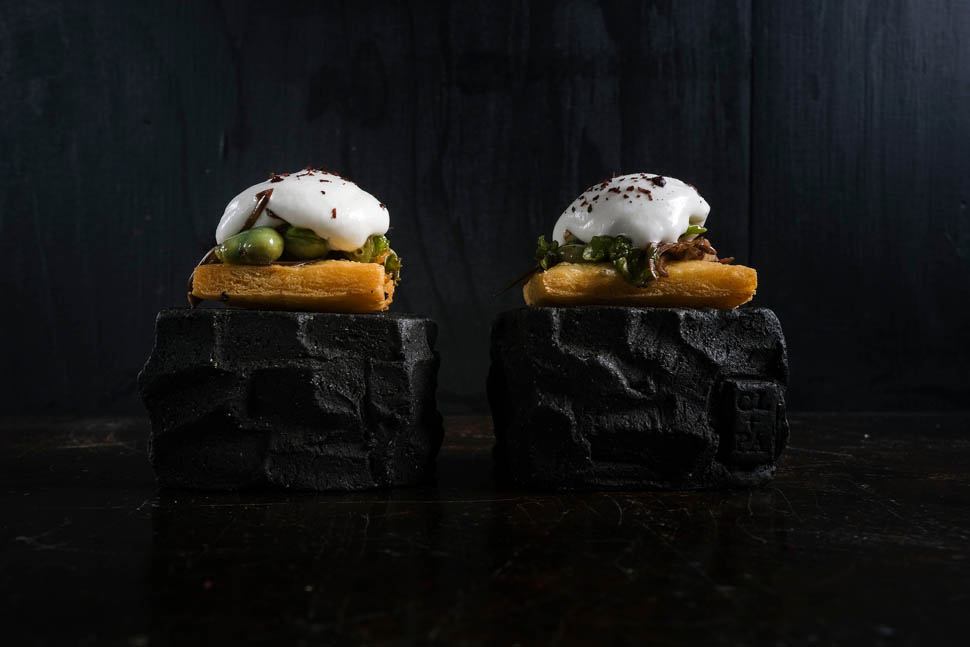
Together with the initial tastings, there is both wood-fired bread, homemade with sourdough and Gentil Rosso and Senatore Cappelli wheat, and "camping bread," an unleavened bread of Australian origin that was easily cooked in the fields and represented a source of immediate and economical food, seasoned with oil, spices, and seeds, coated with a tasty barbecue sauce based on fruit. The first ingredient served is the pepper, marinated in fennel oil, also cooked on the plancha, and served with olive wood-smoked ricotta, herb bread, and lemon, ketchup, and pepper powder: the various tastes are well-balanced, and the different textures make the dish excellent as a whole. Next are two off-menu tastings that pay homage to the many journeys Fabrizio and Martina undertake every year at the end of the season, usually between November and March, the time of business closure: finely sliced and grilled potato, glazed with barbecue sauce, and tacos with fermented white beans, lettuce, sweet and sour onions, paprika mayonnaise, and chili, to be fully enjoyed using hands, in line with Arduino's philosophy. It is a primal gesture often forgotten and considered somewhat inelegant but elevates the sensory relationship with food and brings considerable benefits, as it stimulates conviviality and allows for slower eating to facilitate digestion.
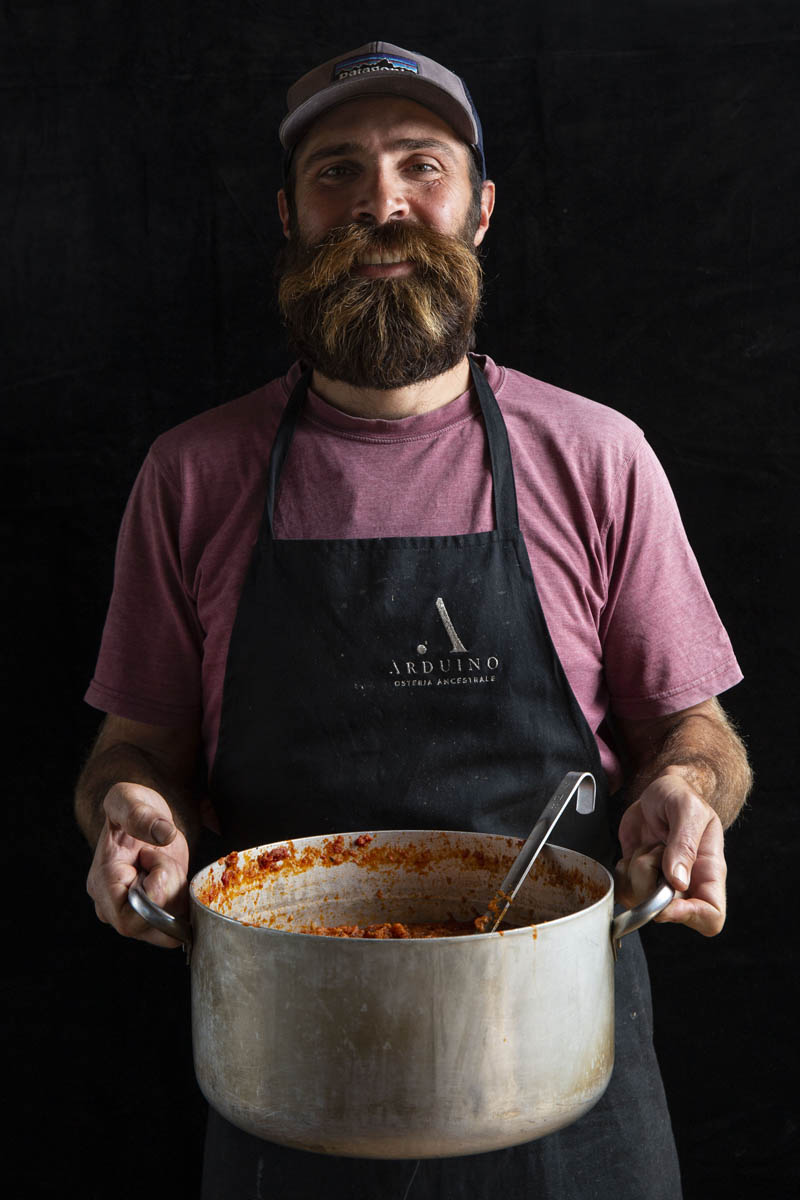
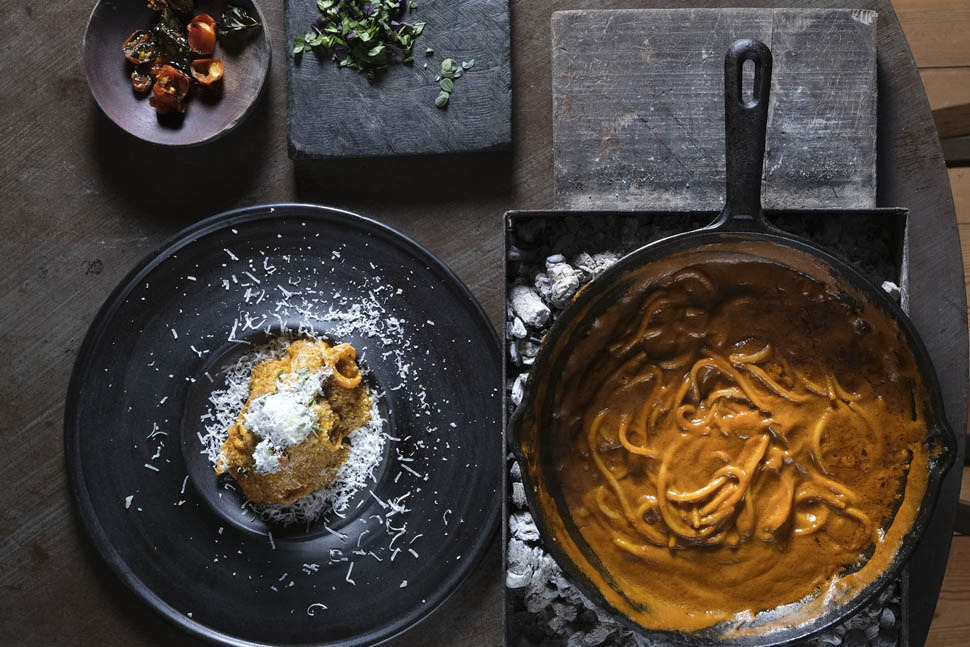
The journey continues with a summer classic of Osteria Ancestrale, pici with tomato, finished at the table by the chef himself: "The pasta is produced by us with water and Senatore Cappelli wheat flour," he explains. "It boils for a minute in the kettle, then on the grill with olive and oak wood underneath for about 4 minutes, to release smoky notes and allow the pici to dehydrate and absorb the tomato sauce more. The sauce is prepared with about 15 different varieties, blended cold and filtered several times to make it smooth and uniformed." In the mantecatura, fermented tomato water is added, giving strong dairy notes and creating the illusion of the presence of cheese. Finally, the dish is completed with a 50-year-old aged balsamic vinegar: "We emphasize acidity a lot because the idea is to recreate in the guest the sensation caused by biting into a raw tomato," concludes Chef Bartoli.
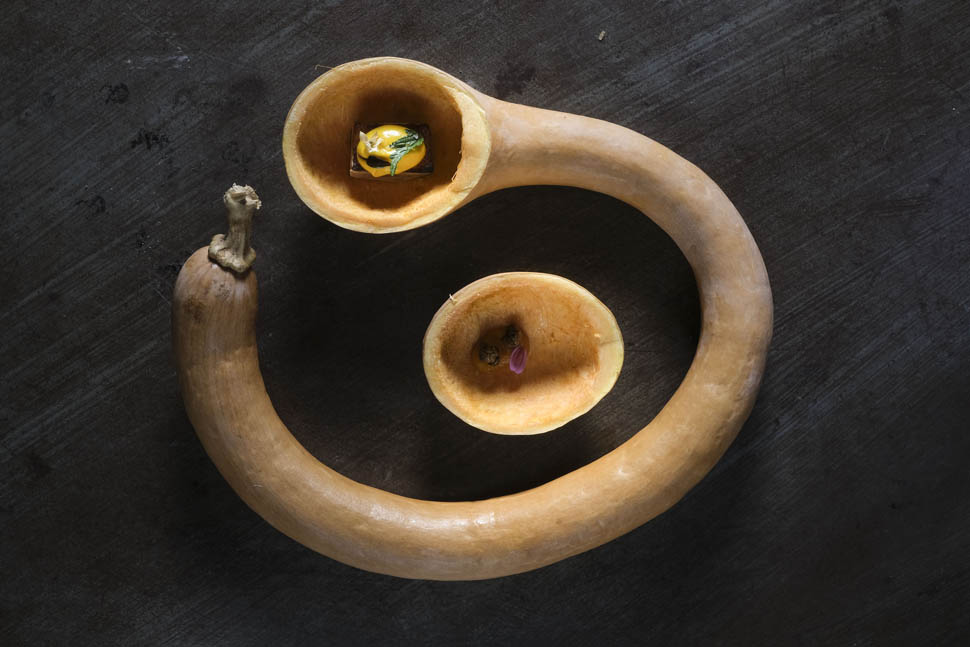
Next is a tomato sorbet to refresh the palate, with tomato water and basil oil, before the last savory ingredient, the pumpkin, of various varieties: Trombetta squash cream cooked in ash for three hours and black garlic fermented bean cream served inside the squash itself, then Delica squash fried wrapped in a batter made from the powder of its own seeds, and finally baby carrot cooked in ash, glazed with plum and medlar chutney. A very pleasant cheese tasting of different ages precedes the dessert, all produced on the estate in limited quantities using only goat and sheep's milk: from fresh ricotta to washed rind.

The last ingredient of the journey is roses, presented in a sweet version with one of the many recipes for rose cake, a sweet and convivial dessert served after a swift transfer on the grill, with a filling of orange marmalade and crème fraîche on the side. Leading a passionate and aware service is Martina Morelli, the chef's partner and general manager of Arduino, who naturally conveys the project's philosophy, turning it into a spontaneous narrative of themselves, their ideas, and passions, without the need to add anything. It is also thanks to her that there is a well-made wine list, not particularly extensive but in line with the offering: ample space for natural wines, mostly Tuscan, with some labels from the rest of Italy and Europe, and some very interesting vegetable-themed cocktail offerings.
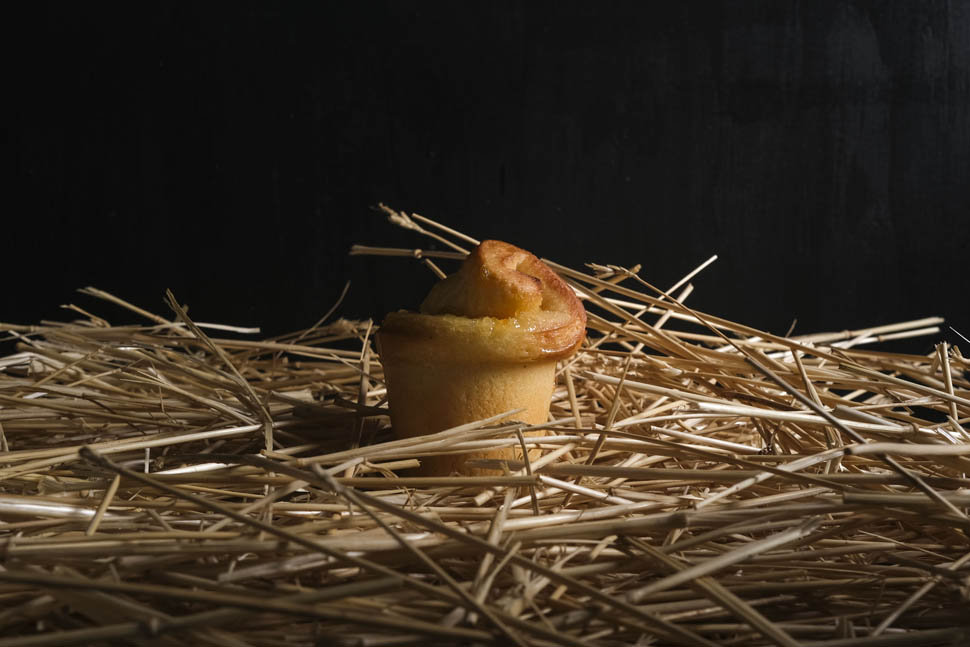
A project not yet completed but appreciated for the extreme coherence of the offer and the total overlap with a lifestyle devoted to nature and oriented towards sustainability: "We are still a bit lacking in some productions that we source from local companies, but if everything goes well in three years, we will be completely self-sufficient and will have achieved all our goals," says Martina, crossing her fingers - "There is still much to be done, but we are on the right path."
Address
Arduino Bolgheri
Loc. magazzino n 210, 57022 Castagneto Carducci LI,
Tel: +39 379 2567646
Website
